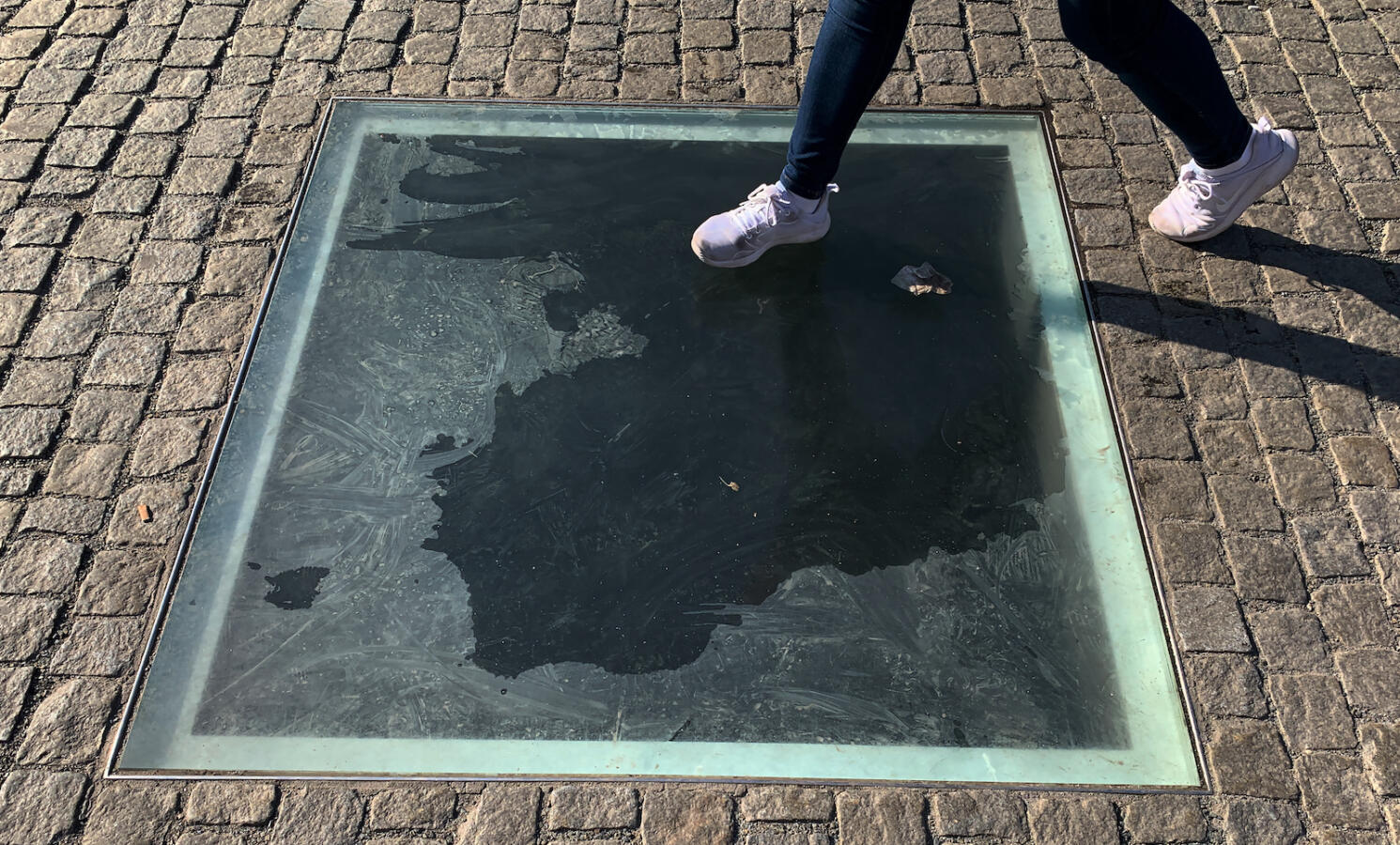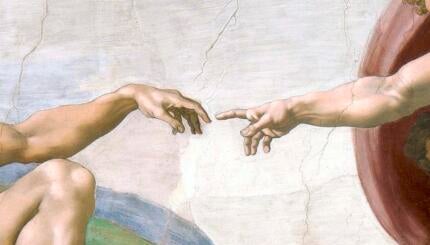This week, Jewish communities mark the anniversary of Kristallnacht, the night of violence, destruction of property and murder targeting Jews in Germany in 1938. Marked annually on November 9, Kristallnacht — known as the Night of the Pogrom among today’s Jews in Germany — represents the initiation of wide-scale destruction and attempted elimination of the Jewish people from Europe, led by Hitler and his entourage.
Kristallnacht was not the first violent incident of the Nazi era. Just five years prior, a group of right-wing students orchestrated a mass book burning in Bebelplatz, a beautiful public square in central Berlin. On May 10, 1933, they destroyed tens of thousands of books written by Jews, communists, and other “un-German” enemies. Today Bebelplatz is home to one of the city’s most famous memorials to the tragic history of the Nazi period. The Bebelplatz memorial is so nondescript it’s almost invisible. To find it, you must walk to the center of the plaza where there’s a window embedded in the ground. Look through it, and you’ll find an empty space with empty bookshelves that represent the effect of book-burning: that which can no longer be seen, touched, read or learned.
What does it mean to remember? In the case of the Bebelplatz memorial, it means to provoke. You think you’re stepping on another square of stone, but you’re actually stepping on a window peering into an ominous past. The experience seems designed to provoke ordinary people walking about the city to internalize the potential for justice in the mundane regularity of life.
And what does it mean to be remembered? As a Jew living in Germany, oftentimes these memorials feel abstract to me, despite the creativity and meaning present in them by virtue of their initiation by ordinary citizens. Would the families of my grandparents, Holocaust survivors from neighboring Poland and the former Czechoslovakia, honestly feel remembered by these public memorials? I’m skeptical. So how might we create a culture that effectively honors the memory of individuals?
With your help, My Jewish Learning can provide endless opportunities for learning, connection and discovery.
Jewish tradition offers a valuable perspective on how to get there. Our sages designated Rosh Hashanah as Yom Hazikaron, the Day of Remembrance, on which God opens a memory book and begins to evaluate God’s people while the people pray for an inscription in the Book of Life. On Rosh Hashanah, we hope to be remembered and that our stories are favorably recounted in the heavenly court. But during the Rosh Hashanah Torah reading, we recount an incident, also featured in this week’s Torah portion, that suggests a different quality of remembrance. Va-Adonai pakad et Sarah, we read in Genesis 21:1. God took note of Sarah by recalling the promise made to deliver her a child. The word pakad, commentaries tell us, denotes an act of extraordinary remembrance on the part of God. Not only does God remember a promise, God also takes action to fulfill it, bringing a story of pain and difficulty to a fruitful and joyous conclusion.
Are memorials, monuments and anniversary observances like November 9th capable of holding the same sort of promise? Can we truly guarantee those who lost their lives the respect of being remembered — not only in the sense of not forgetting them, but in the way that God remembered Sarah, by fulfilling our responsibilities to them? The goal of this kind of remembrance is not to undo a painful past, but rather to make a statement about who we are in this generation: We have learned, we have changed, and we strive for a better future.
God’s extraordinary remembrance of Sarah didn’t erase the years of pain she endured before Isaac entered her life — they are still part of her. And yet with Isaac’s birth, Sarah’s lineage will continue. That’s the element of extraordinary remembrance we can strive for, too. No matter where we live, at these moments in the calendar, we can renew our commitment to build the promise of a just, peaceful future.
This article initially appeared in My Jewish Learning’s Shabbat newsletter Recharge on Nov. 12, 2022. To sign up to receive Recharge each week in your inbox, click here.



